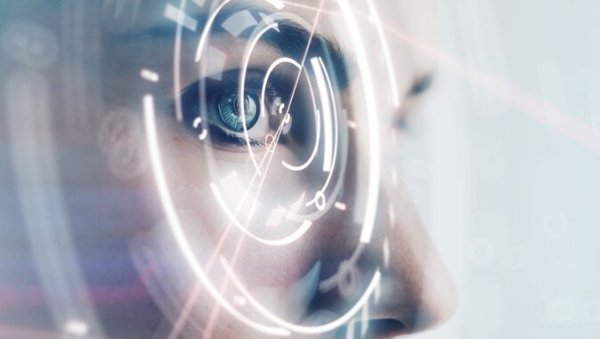Self-Esteem and Ego: 7 Differences


Reviewed and approved by the psychologist Gema Sánchez Cuevas
Some people might still think that self-esteem and the ego are one and the same. It makes perfect sense if you think about how we’re taught from a young age to look after others before we look out for ourselves. Even as adults, if you watch out for yourself people might label you as egocentric and selfish.
But what happens when we confuse self-esteem with ego? We end up putting others’ needs before our own. We also seek external approval and feel guilty when we want to say “no.” Instead, we feel obligated to say “yes” so that we don’t seem selfish.
The biggest consequence of this confusion is being disconnected from our needs. We forget to listen to ourselves and as a result, we don’t value ourselves as we should. Because of all of this, today we are going to look at 7 differences between self-esteem and ego.
1. Admiration for oneself
People with big egos love themselves too much. It goes to such an extreme that they develop narcissistic traits and see the world through a distorted lens. The big problem with these kinds of people is that they think they are better than other people. They consider themselves perfect, and everything they do is perfect.
On the other hand, people with high self-esteem value themselves, but realistically. They are aware of their virtues but also their defects. They don’t try to hide them and pretend to be something else. On the contrary, they accept them. If they encounter problems or difficulties because of their faults, they try to find a solution.

Admiring yourself, loving yourself, telling yourself positive things- none of that is bad. However, it is bad to believe that you are perfect. We all have our faults, and recognizing them helps us be better people. Pretending we don’t have any doesn’t do us any good.
2. Worrying about yourself and others
You can see the difference between self-esteem and ego very clearly in this second point. Selfish people are always worried about themselves and never think about others. They must be the center of attention and all eyes must be on them. If that doesn’t happen, if they feel ignored and react angrily.
Meanwhile, people with healthy self-esteem think about themselves and others. That’s why, unlike selfish people, they know how to listen and they aren’t constantly trying to be the center of attention. Someone with good self-esteem has empathy and more rewarding relationships.
“You cut and style your hair, but you always always forget to do the same with your ego.”
-Albert Einstein-
3. Looking past your own beliefs
When we interact with people with big egos, the first thing we notice is that they aren’t able to see beyond their beliefs. You can’t expect them to question themselves or reflect on their views. They think their perspective is the only right one. This causes a lot of conflict with other people.

People with healthy self-esteem, on the other hand, are able to see beyond their own points of view. They know that their perspective isn’t the only one and they understand that other people have different ideas.
They might even get interested in other ideas. The fact that they know how to listen and put themselves in other people’s shoes means they have healthier relationships. They are able to adopt new ideas, and the result is easier interaction.
As you can see, one clear difference between ego and self-esteem is that a big ego prevents you from feeling empathy. Selfish people simply can’t put themselves in other people’s shoes.
To do that requires strong and healthy self-esteem. In fact, people with big egos don’t usually respect or love themselves. They cover up and hide what they don’t like. That’s why it’s so hard for them to see beyond their own little world.
4. Difficulty accepting criticism
People with a big ego can’t stand hearing criticism. Why? They take it as an attack on the distorted and exaggerated idea they have of themselves. Since they hide their weaknesses behind this false grandeur, anything that threatens to reveal them makes them defensive. They get angry and blame other people.
Those with healthy self-esteem are able to recognize their defects. They can take criticism and they use it to become better people. They won’t take criticism as being negative. Rather, they appreciate it when it’s constructive.
“When you look critically at yourself and accept constructive criticism, you are able to mature and evolve.”
-Jorge Gonzalez Moore-
5. Expecting something in return
We already know that selfish people always think about themselves. So, if they are looking for help or seem interested in something, it’s because they stand to benefit in some way. If there’s nothing in it for them, selfish people won’t take other people into account.
People with good self-esteem don’t act this way. They don’t use other people as a means to an end. Rather, they know that they have the chance to learn and grow through every interaction. People with good self-esteem never act out of pure self-interest.

People with healthy self-esteem are generous and don’t think of their relationships with other people in terms of what they stand to gain.
6. Hierarchy, not equality
Another big difference between selfish people and people with healthy self-esteem is a feeling of superiority. People with big egos think they are above everyone else. They might think, for example, that they are stronger, more intelligent, or more beautiful than other people. They also think that the world revolves around them.
In contrast, people with good self-esteem know that no one is better than anyone else, just different. Thus, they don’t make comparisons.
“Don’t compare yourself with anyone. Keep your head up and remember: you aren’t better or worse, you are simply yourself and no one can do that better than you.”
-Anonymous-
7. To give to others, first you have to give to yourself
The last difference between self-esteem and ego is the idea of taking care of others’ needs before your own. It’s important to remember, however, that you can’t give what you don’t have.
Those who have big egos can’t love in a healthy way, nor can they meet other people’s needs if they haven’t taken care of their own first. Their lives are attempts to pretend, disguise, and think they are better than others…
That doesn’t happen to people with healthy self-esteem. They respect, accept, value, and love themselves. As a result, they are able to have satisfying, fruitful relationships. They aren’t selfish; they’re learning what they need so they then can provide it to others.

All of us have acted selfishly at one point or another. Identifying it instead of denying it, and facing the fact will help us realize if we are dealing with hidden self-esteem problems. Do you think you are enough? What makes you feel insecure? Why do you want people to pay attention to you? Think about it. You can’t have a big ego and healthy self-esteem at the same time.
This text is provided for informational purposes only and does not replace consultation with a professional. If in doubt, consult your specialist.








